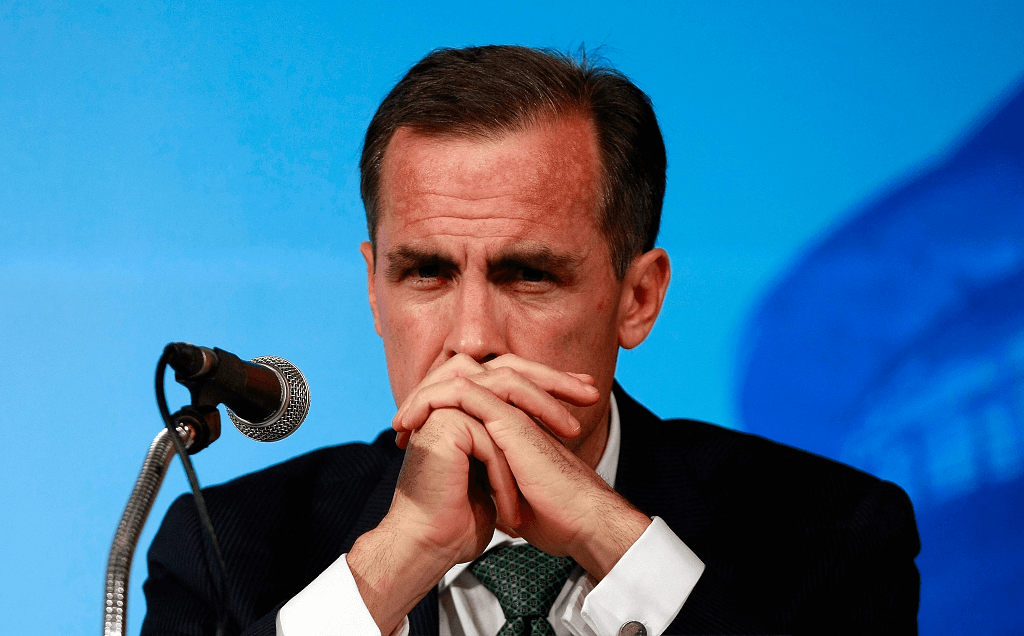From China's slowdown to Apple's wobbly sales forecasts, you could be forgiven for thinking the future looks bleak for business in the UK. Here's why you should think again.
Why Uncertainty Shouldn’t Temper Confidence In 2016
From China's slowdown to Apple's wobbly sales forecasts, you could be forgiven for thinking the future looks bleak for business in the UK. Here's why you should think again.

Less than a month in, 2016 has already seen its fair share of economic turbulence. £38 billion was wiped off the FTSE 100 during its first day of trading, as poor manufacturing data caused further volatility in Chinese markets, whilst uncertainty in the Middle East, fluctuating oil prices and uncertainty around a looming EU referendum continues to trouble investors in UK assets.
Simultaneously, business confidence seems to have taken a knock. Lloyds Bank’s latest Business in Britain report, released earlier this month, shows that UK businesses expect sales, orders and profits to fall over the next six months.
The overall score for business confidence is down to 38% from 43% in July and January 2015. While weaker UK demand was identified as the primary threat to business, exporters also cited lower overseas demand – a symptom of the soft global economy, but also exchange rates – as a pressing concern.
Nevertheless, while these reports seem to paint a bleak picture of the UK business landscape going into 2016, there are indications that the challenges being faced can be overcome.
The strength of Sterling against both the Euro and US Dollar – the major concern for exporters at present – is likely to fluctuate to some degree. Sterling has already devalued against the Dollar as the US Federal Reserve raised interest rates, with expectations that rates will rise by a further 1.00% over the coming 12 months.
It is now trading near its five year low despite a recent rally, with room to go lower. Indeed, the Bank of England is looking ever more likely to keep interest rates at all times lows, continuing to supress Sterling against the US dollar as a result.
The Euro however, is another question entirely. Sterling remains in the 1.30 – 1.42 trading range first reached in February 2015, and not previously seen since 2007, continuing to put pressure on UK competitiveness with our biggest export destination.
This is likely to increase further as Mario Draghi, President of the European Central Bank, returned to dovish form last week, indicating that that it is highly likely stimulus will be boosted at the ECB’s meeting in March. Further stimulus would weaken the Euro, reducing competitiveness further for UK businesses exporting to Eurozone destination.
Despite this, many maintain a positive perspective on the UK’s domestic health. In a survey conducted by the Financial Times, four out of five economists predicted that 2016 would be another good year for UK growth.
Martin Ellison, professor of economics at the University of Oxford responded that “firms are in good shape to invest”, due to buoyancy in domestic demand as real wages rise faster than the consumer price index. Other respondents identified immigration and falling unemployment as further reasons for economic confidence.
While UK growth as a whole slowed in Q4 2015, certain sectors continued to fair well. According to the Markit/CIPS service sector purchasing managers’ index (PMI), growth in the UK service sector accelerated towards the end of last year.
However, where sectors are performing well, there is often increased competition, as businesses jostle to take a slice of a lucrative pie. In order to remain competitive in this space, businesses need to invest – and their ability to do this depends on their ability access to finance.
In November 2015, my business UK Bond Network were able to supply CommuniGator, a leading provider of B2B marketing software and services, with £500,000 of finance, which the company is now using to fund its next stage of growth.
Like many businesses within the services sector, CommuniGator was in good financial health, enabling its management to consider a number of finance options. Nevertheless, their preference for debt over equity funding, and desire to offer security through company assets, meant that UK Bond Network emerged as the ideal fit.
While business success may be helped or hindered by wider economic conditions 2016, their success will ultimately also depend on ambition, and on taking the long view. CommuniGator’s formula is an age-old one: invest to grow.
Thanks for signing up to Minutehack alerts.
Brilliant editorials heading your way soon.
Okay, Thanks!




